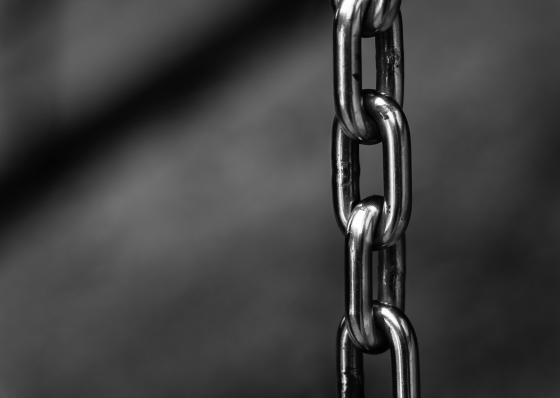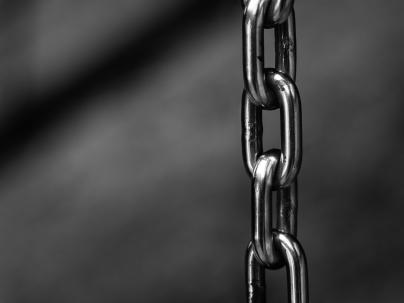Everything To Know About Anti-counterfeiting Laws

Questions?
Talk to a Digital Product Passport expert about your challenges - it's completely free.

Anti-counterfeiting laws are legislations set in place to prevent or combat the problem of counterfeit goods. Several anti-counterfeiting laws have been created to battle the ever present issue of fake or counterfeit intellectual property. However, even with the measures that have been established, counterfeiting still remains a problem today.
The concerns about counterfeit products stem from multiple sources. Government officials, stakeholders, and international organisations, all feel the need for the establishment of a healthy and secure market environment for their citizens or consumers.
Anti-counterfeiting laws ensure that legitimate exchanges are promoted, and there is competition among companies. Many international Intellectual Property (IP) conventions have been carried out since the 19th century to find a way to set a minimum global standard to protect trademarks, patents, industrial designs, services, and other things in danger of counterfeits.
The modern Intellectual Property laws have their foundations linked to The Paris Convention. The World Trade Organisation (WTO) and the Agreement on Trade-Related Aspects of Intellectual Property Rights (TRIPs) emulated the Paris Convention to enhance uniform IP rights.
The world needs a uniform legal framework that works against counterfeiting. Although TRIPs have proven to be useful, more anti-counterfeiting laws need to be set in place to keep up with experienced offenders. Anti-counterfeiting laws must not interfere with privacy rights. The Anti-counterfeiting Trade Agreement raises several flags when it comes to privacy rights conspiracies.
Counterfeiting And Its Damaging Effects
Counterfeiting is a criminal offence that involves stealing another person’s intellectual property. Both large and small businesses utilise unique trademarks so that their customers can easily identify their brand. Most times, a trademark can be a phrase, symbol, or word that identifies the company behind it.
Financial and Reputation Effects
A counterfeit good utilises a business’s trademark without their permission. Counterfeiters make money illegally by collecting undeserved profits by exploiting the reputation of the trademark. Counterfeiting is a punishable offence by law, and in the US for example, offenders can be sentenced to life in prison or up to $30,000,000 in fines.
Counterfeit goods cause damage to a company’s trademark reputation. This reduces the public’s confidence in said company. The mistrust planted in the minds of consumers by counterfeit goods can lead to serious losses for any well-known company.
Health Effects
Apart from the loss of reputation and financial damages incurred by the company, counterfeit goods can also cause problems to the health of consumers. For example, in the pharmaceutical industry, counterfeit medicines might make you more ill instead of treating your illness.
The damages from counterfeit intellectual property is obviously a serious problem that can pose a threat to the life of others. This makes the need for suitable anti-counterfeiting laws more pressing in the world today.
Anti-counterfeiting Laws In Force Around The World
There are several anti-counterfeiting laws that are already in force all over the world. The TRIPs agreement and the ACTA are international legislations set in place to counter counterfeiting around the world.
Anti-counterfeiting Trade Agreement (ACTA)
The ACTA was signed by several countries in October 2011. The first countries to sign the ACTA were Australia, Morocco, Canada, Japan, Singapore, New Zealand, United States, and South Korea. A year later, Mexico and 22 member states of the EU signed the agreement as well. Japan and the United States have formally ratified the trade agreement, and after ratification by 6 countries, it will come into force.
However, in 2012, the European Parliament invoked the Lisbon Treaty to reject the approval of the ACTA in European Countries. The European Union then came up with Digital Product Passports to help identify counterfeit goods. Although the ACTA has the support of multiple parties, there is also a layer of criticism surrounding it, and the agreement is deemed as controversial.
Anti-counterfeiting Consumer Protection Act (ACPA)
The Anti-Counterfeiting Consumer Protection Act or ACPA is another Anti-Counterfeiting law that tackles the problem of counterfeit intellectual property. However, the ACPA focuses mainly on keeping consumers safe from the dangers of counterfeits.
The ACPA charges individuals or organisations that traffic intellectual property like audiovisuals, phonerecords, and computer programs, under the Racketeer Influenced and Corrupt Organizations Act. The act also amends the Federal criminal code to include computer programs, refine existing prohibitions, and create new penalties for offenders.
Some of the penalties of the ACPA include the seizure of aircrafts or vessels used for transporting counterfeit goods, and severe fines for aiders and abetters. Any confirmed counterfeit product can also be seized and destroyed by the appropriate enforcing bodies.
The ACTA and ACPA are important laws that keep people and businesses safe from intellectual property theft. To find out more on these anti-counterfeiting laws, click here.
Who Creates Anti-counterfeiting Laws?
Anti-counterfeiting laws are not necessarily country-specific. In fact, due to the nature of the market system, anti-counterfeiting laws need to consider products or goods that are imported into different countries to fully face the problem of counterfeits head on. Therefore, most anti-counterfeiting laws work on an international level.
Most times, several countries can come together to establish an agreement that will help tackle counterfeiting in their regions. However, this doesn’t mean there are no country or continent-specific anti-counterfeiting laws. The Digital Product Passport (DPP) established by the European Union is a legislation that fights against counterfeits.
DPPs will not only tackle counterfeit products in all European countries, it will also monitor goods and product components that are shipped into Europe. Although DPP may only apply to European Countries, companies looking to do business with the EU must also comply with the legislation. This gives it a wide-spread global impact.
Why We Need Anti-counterfeiting Laws
Counterfeiting laws protect businesses, stakeholders, and final consumers from the risks involved in counterfeiting. Counterfeiting can have serious negative impacts on your reputation, finances, and health. Hence, it is very important for there to be laws in place to tackle counterfeiting.
Counterfeiters often prey on the desires of customers for lower prices. Purchasing counterfeit products might seem cheap at first, but it also comes at your expense and that of others.
Here are some of the risks that are associated with counterfeiting around the world.
- Many counterfeit goods are made using substandard materials or dangerous substances, which can put public health at risk.
- Counterfeiters do not pay taxes, and in so doing, reduce the funds governments release for social welfare programs.
- Purchasing products from counterfeit online stores can put you in danger of credit card fraud or identity theft.
- The resources that legitimate companies put into researching and developing new products will also be impacted by counterfeiters.
- There are also many cases where the profit from counterfeiting has been linked to organised crime.
Final Words
Anti-counterfeiting laws are made to protect consumers, companies, and stakeholders from the threat of counterfeit intellectual property. They establish legal punishments for offenders caught in the act of counterfeiting, and come up with new strategies to tackle experienced offenders.
Counterfeit products can be an enormous danger to your company, finances, or health. Are you looking for how to suitably tackle the counterfeiting of your company’s products or trademark? Check out our anti-counterfeiting solutions to find out more.

